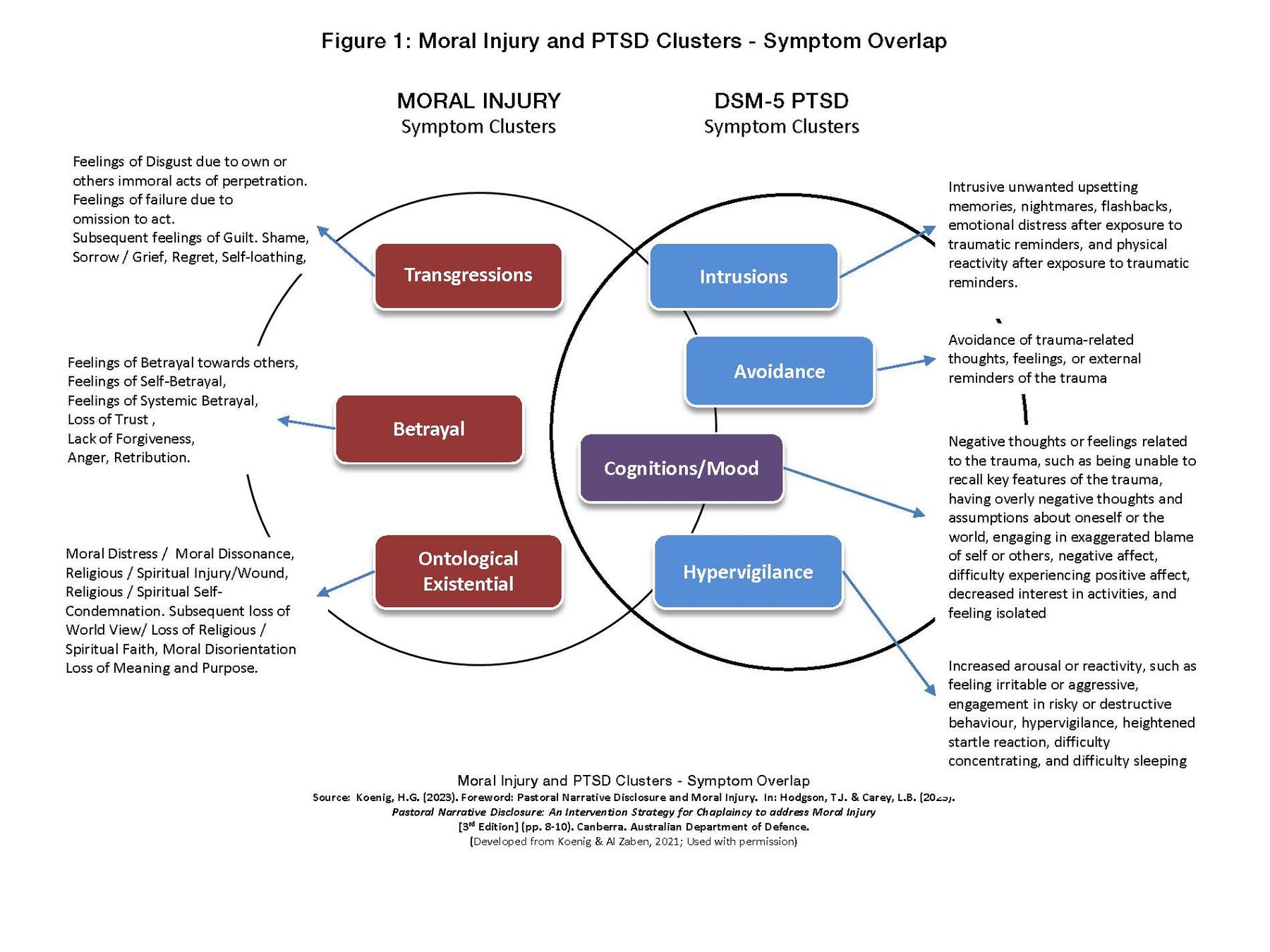Post-Traumatic Stress Disorder (PTSD) affects millions of people worldwide. Survivors of traumatic events often find it challenging to cope with the aftermath of such experiences, leading to a range of symptoms that can impact their daily lives. While traditional forms of therapy have proven effective in treating PTSD, there is another option that many people may not be familiar with: hypnotherapy. In this blog post, we will delve into the role hypnotherapy plays in treating PTSD and explore how it can help survivors find relief from their symptoms. Whether you’re someone who has experienced trauma or a therapist looking for new tools to help your clients, this post is for you.
What is Hypnotherapy and How Does it Work for PTSD?
Hypnotherapy is a complementary therapy that uses guided relaxation techniques to create a trance-like state of heightened focus and concentration. During this state, a person is more open to suggestion and can access their subconscious mind. PTSD, or post-traumatic stress disorder, is a mental health condition that can develop after experiencing or witnessing a traumatic event. Hypnotherapy for PTSD aims to help individuals process and reframe traumatic memories in a safe and controlled environment. This therapy can also help individuals develop coping mechanisms and reduce symptoms such as anxiety, depression, and insomnia. While hypnotherapy is not a standalone treatment for PTSD, it can be used in conjunction with other therapies such as cognitive-behavioral therapy (CBT) and medication to provide comprehensive care for those struggling with PTSD.
Unpacking the History of Treating PTSD with Hypnotherapy
Hypnotherapy has been used to treat PTSD for decades, but its origins can be traced back to the late 19th century. French neurologist Jean-Martin Charcot was one of the first to use hypnosis as a treatment for hysteria, a condition that is now recognized as a form of PTSD. Later, Austrian physician Sigmund Freud also used hypnosis in his work with patients suffering from trauma.
During World War II, hypnosis was used to treat soldiers with shell shock, which is now known as PTSD. However, it wasn’t until the 1980s that hypnotherapy began to gain more widespread acceptance as a treatment for PTSD. Today, many therapists and healthcare professionals recognize hypnotherapy’s potential to help individuals suffering from PTSD overcome their symptoms and lead healthier lives.

The Science Behind Hypnotherapy’s Effectiveness in treating PTSD
Neuroplasticity and memory reconsolidation are two key concepts that explain the effectiveness of hypnotherapy in treating PTSD. Neuroplasticity refers to the brain’s ability to reorganize and form new neural connections in response to experiences. Hypnotherapy can help facilitate this process by guiding patients to access and reframe traumatic memories, allowing for new neural pathways to form. Memory reconsolidation is the process by which memories are retrieved and then re-stored, potentially with new information. Hypnotherapy can aid in this process by helping patients update their traumatic memories with more positive associations. Research has shown that hypnotherapy can lead to significant reductions in PTSD symptoms, as well as improvements in mood and quality of life.

Understanding the Benefits and Risks of Hypnotherapy for PTSD Treatment
How Hypnotherapy Works in Treating PTSD
Hypnotherapy works by accessing the subconscious mind to identify and address the root causes of PTSD. This allows for a deeper level of healing and can lead to long-lasting results. During a hypnotherapy session, the patient is guided into a relaxed state where they are more receptive to suggestions and can access repressed memories or emotions. The therapist may use techniques such as visualization, positive affirmations, or regression therapy to help the patient process and release traumatic experiences. It is important to note that hypnotherapy is not a standalone treatment for PTSD and should be used in conjunction with other therapies and medications. However, it can be a valuable tool in promoting overall healing and recovery.
Benefits of Hypnotherapy for PTSD Treatment
Hypnotherapy offers various benefits as a treatment tool for PTSD. Firstly, it allows patients to access repressed memories and emotions that may have been difficult to confront otherwise. Secondly, it helps individuals identify the root cause of their trauma and address those issues directly. Additionally, hypnosis can create an altered state of consciousness which allows patients to feel more relaxed and open during therapy sessions. It has also been found to increase resilience and decrease anxiety levels in some individuals with PTSD symptoms. Finally, hypnotherapy is non-invasive and drug-free making it a safe alternative or complementary approach to traditional medications or forms of therapy used for treating PTSD symptoms.
Risks and Limitations of Hypnotherapy for PTSD Treatment
Hypnotherapy for PTSD has shown promising results, but it is important to understand the potential risks and limitations. While hypnosis is generally considered safe, it may not be suitable for everyone, especially those with a history of dissociation or psychosis. Additionally, hypnotherapy should only be performed by a qualified practitioner who has experience working with trauma survivors. It is also important to note that hypnosis is not a quick fix and may require multiple sessions to see significant results. However, when used in conjunction with other treatments, such as therapy and medication, hypnotherapy can be an effective tool in the recovery process.
Integrating Hypnotherapy with Other PTSD Treatments
Integrating hypnotherapy with other PTSD treatments such as medication and psychotherapy can lead to enhanced effectiveness of the overall treatment. Hypnotherapy has been found to complement the use of antidepressants and cognitive-behavioral therapy, thereby improving symptoms associated with PTSD. It is important to note that this should be done under proper medical supervision, as hypnosis may interact with certain medications or exacerbate pre-existing conditions in some individuals.
Complementary Treatments
Enhanced Effectiveness

Examining Case Studies: Success Stories of Using Hypnotherapy to treat Veterans’ PTSD
From Trauma to Recovery: A Hypnotherapy Success Story for PTSD Treatment in Veterans
Hypnotherapy for PTSD has shown significant potential as a treatment option, especially for veterans who have experienced severe trauma. One such veteran is John, who was diagnosed with PTSD after serving in the military. After years of struggling with anxiety and nightmares, he decided to try hypnotherapy.
During his sessions, John was guided through relaxation techniques and imagery exercises meant to help him confront and process his traumatic memories. Gradually, he began experiencing fewer flashbacks and waking up less frequently throughout the night.
Through hypnosis therapy, John found relief from many of his PTSD symptoms. He credits this success to the dedicated professional who provided his treatment – someone trained specifically in using hypnosis as a tool for healing past trauma.
Examining the Efficacy of Hypnotherapy in Treating PTSD Amongst Military Personnel
Studies have shown that hypnotherapy can be an effective treatment for PTSD amongst military personnel. One study conducted by the US Department of Veterans Affairs found that veterans who received hypnotherapy as part of their treatment experienced a significant reduction in PTSD symptoms compared to those who did not receive hypnosis. Another study found that hypnotherapy combined with cognitive-behavioral therapy (CBT) was more effective in reducing PTSD symptoms than CBT alone. These findings suggest that hypnotherapy can be a valuable tool in treating PTSD amongst military personnel, providing a safe and non-invasive alternative to traditional treatments.
Case Studies on How Hypnotherapy Helps Veterans Overcome PTSD Symptoms
Hypnotherapy has shown promising results in treating PTSD symptoms among veterans. In a case study conducted by the Department of Veterans Affairs, hypnosis was used to treat a veteran with severe PTSD symptoms. The patient reported significant improvement in sleep quality, reduction in anxiety and depression, and overall improvement in quality of life after just six sessions of hypnotherapy. Another study showed that hypnosis combined with cognitive-behavioral therapy helped veterans reduce their PTSD symptoms by 68%. These case studies demonstrate the potential of hypnotherapy as an effective treatment option for veterans struggling with PTSD.
Understanding the Unique Benefits of Using Hypnosis to Treat PTSD in Counselling
Hypnotherapy offers unique benefits in treating PTSD that other forms of therapy may not provide. By accessing the subconscious mind, hypnosis can help individuals identify and reprogram negative thought patterns and behaviors that are often deeply ingrained as a result of trauma. Additionally, hypnosis can help individuals tap into their inner resources to build resilience, manage stress, and develop coping mechanisms. Case studies have shown promising results when using hypnotherapy to treat veterans with PTSD symptoms such as nightmares, flashbacks, and anxiety. As always, it is important to choose a qualified practitioner who specializes in PTSD treatment to ensure effective results from your hypnotherapy sessions.

Complementary Treatments: Combining Therapy, Medication, and Hypnosis for Trauma Recovery
Combining Therapy, Medication, and Hypnosis for Trauma Recovery
While hypnotherapy has shown promising results in treating PTSD, it is not meant to be a standalone treatment. Rather, it works best when used alongside other therapeutic interventions and medications. Combining hypnotherapy with cognitive-behavioral therapy (CBT) or Eye Movement Desensitization and Reprocessing (EMDR) can help address the underlying triggers of trauma while also addressing any associated anxiety and depression.
It’s important to note that medication should only be prescribed by a qualified healthcare professional and used as prescribed. While some individuals may experience immediate relief from medication alone, others may find they need additional support from therapy or hypnosis.
Moreover, cognitive-behavioral therapy has been found effective in combination with self-hypnosis techniques. These include guided imagery exercises such as visualizing calm environments or happy memories; progressive muscle relaxation exercises involving deep breathing; daily journaling focusing on gratitudes or accomplishments; engaging in activities that bring joy such as hobbies or exercise routines.
Overall combining therapies provides the best support for individuals suffering from PTSD, allowing them to work through their symptoms using evidence-based practices tailored to their unique needs while minimizing reliance on medications alone.

Common Misconceptions About Using hypnosis as a treatment tool
There are several misconceptions about hypnotherapy that prevent people from seeking it as a treatment option for PTSD. One common myth is that hypnosis involves mind control, where the therapist can make the patient do things against their will. However, this is far from the truth. Hypnotherapy is a collaborative process where the patient is always in control and can stop the session at any time.
Another misconception is that hypnosis only works for people who are highly suggestible or have weak willpower. In reality, anyone can benefit from hypnotherapy regardless of their level of suggestibility. The therapist’s role is to guide the patient into a state of deep relaxation where they can access their subconscious mind and work through their trauma.
Lastly, some people believe that hypnosis is a quick fix or miracle cure for PTSD. While hypnotherapy can be highly effective in treating PTSD, it is not a one-size-fits-all solution and requires commitment and patience from both the patient and therapist. It may take several sessions to see significant progress, but with dedication and perseverance, hypnotherapy can be a valuable tool in overcoming trauma.

How to Choose a Qualified Practitioner for Your hypnosis Treatment
When choosing a hypnotherapy practitioner for treating PTSD, it is essential to do your research. Ensure that the practitioner is certified and trained in both hypnosis and therapy, as you need a professional who understands how to address your specific needs. Look for reviews or testimonials from previous clients, particularly those with PTSD treatment experience. Remember that it’s critical to build trust with your therapist so that you can comfortably share sensitive information about yourself and traumatic experiences during the sessions.
Additionally, check if they have experience working with trauma or PTSD specifically. Ask questions about their approach to treatment, what sort of techniques they use during sessions and how long each session typically lasts before committing to any treatment program.
It’s wise not be swayed by unproven claims made by some practitioners regarding hypnosis as an almost magical cure-all remedy for all conditions as this may lead you down an unreliable path. Ultimately, finding the right hypnotist/therapist combination is key in ensuring effective results from hypnotherapy treatments addressing PTSD symptoms over time.

Long-term Strategies: Ensuring Effective Results from Hypnosis Therapy
Consistency and commitment are key to ensuring effective results from hypnosis therapy for PTSD. It is important to attend all scheduled sessions and follow through with any homework or self-care practices recommended by the therapist. It is also important to communicate openly with the therapist about any concerns or challenges that arise during the treatment process.
In addition, it can be helpful to incorporate other forms of self-care into daily life, such as exercise, mindfulness practices, and healthy eating habits. These practices can support the healing process and help manage symptoms of PTSD.
It is also important to have realistic expectations for the treatment process. Hypnotherapy is not a quick fix and may require several sessions before significant progress is made. However, with patience and dedication, hypnotherapy can be a powerful tool in overcoming PTSD and reclaiming a sense of peace and well-being.
In conclusion, hypnotherapy is a valuable tool in the treatment of PTSD. It has been used successfully for decades to help individuals struggling with trauma-related symptoms. Understanding the history, science, benefits and risks of hypnotherapy for PTSD can be helpful when considering this type of treatment approach. Additionally, exploring complementary treatments and debunking common misconceptions related to hypnosis can also aid in finding successful long-term strategies for recovery. If you are considering hypnosis therapy as part of your trauma recovery journey, it is important to choose a qualified practitioner who has experience working with PTSD clients and ensuring that you have realistic expectations regarding possible outcomes from your treatment plan. With careful consideration and guidance from a trained professional, using hypnotherapy as part of an integrated approach may help facilitate healing and promote resiliency after experiencing traumatic events.
FAQ
Who can benefit from hypnotherapy for PTSD?
Anyone who has experienced trauma and is suffering from PTSD.
What is hypnotherapy for PTSD?
It’s a technique that uses hypnosis to help individuals process and overcome trauma.
How does hypnotherapy help with PTSD?
It helps individuals access their subconscious mind to process and release traumatic experiences.
What are some common objections to hypnotherapy for PTSD?
Some people may be skeptical of hypnosis or worry about losing control during the session.
How can I overcome my skepticism about hypnotherapy for PTSD?
Research the technique and find a qualified hypnotherapist who can answer your questions and address your concerns.
What if I’m afraid of losing control during hypnotherapy for PTSD?
You are always in control during hypnosis and can stop the session at any time. Your hypnotherapist will also guide you through the process and ensure your safety.
